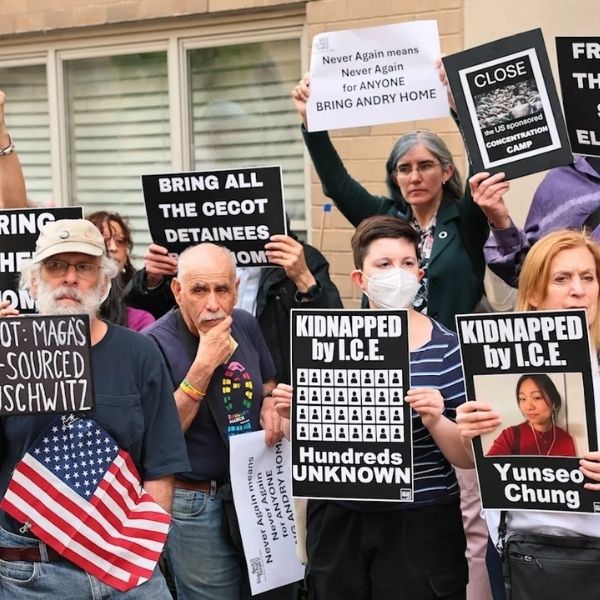As the Trump administration continues its aggressive push to expand deportation powers, legal experts from the conservative Heritage Foundation argue that noncitizens are entitled to only minimal due process protections in immigration matters.
In a newly released memorandum, Hans von Spakovsky, a senior legal fellow at Heritage and former DOJ official, outlined how due process applies differently to noncitizens compared to U.S. citizens—particularly when it comes to deportation.
“Aliens have only limited due process rights in immigration proceedings,” von Spakovsky wrote, emphasizing that the rights differ based on an individual’s immigration status and location—whether they are inside or outside the U.S.
What Rights Do Noncitizens Have?
While noncitizens do have full due process rights in criminal cases—such as the right to legal counsel—immigration proceedings operate differently. These are civil, not criminal, matters and are handled in immigration courts, where legal protections are more limited.
For example, immigration law allows “expedited removal” of migrants apprehended within two years of illegally entering the country—without a hearing, unless they request asylum or express a credible fear of persecution.
If asylum is claimed, the legal process can involve:
-
Immigration officers
-
Immigration judges
-
The Board of Immigration Appeals
-
Federal appeals courts
-
The U.S. Supreme Court
Critics argue this process is often abused, with false asylum claims allowing individuals to remain in the U.S. indefinitely.
Court Pushback and Controversy
The administration’s efforts to curb asylum have repeatedly been challenged in court. Just this week, a federal judge in Washington, D.C., blocked a key restriction on asylum, accusing the administration of trying to “rewrite” immigration law. Attorney General Pam Bondi signaled that an appeal is forthcoming.
These battles reflect growing tension between the executive branch and the judiciary. Stephen Miller, Trump’s top immigration adviser, recently posted online:
“The only process illegals are due is deportation.”
Cases like those of Kilmar Abrego Garcia—allegedly deported to El Salvador despite a court order—and deportees held in inhumane conditions in Djibouti highlight ongoing legal concerns. Others deported under the Alien Enemies Act to El Salvador have also filed suits, arguing they were given no chance to fight removal.
Supreme Court Still Recognizes Due Process for Noncitizens
Despite Heritage’s stance, the Supreme Court has consistently ruled that noncitizens are entitled to some due process protections in deportation proceedings.
In Reno v. Flores (1993), Justice Antonin Scalia wrote:
“It is well established that the Fifth Amendment entitles aliens to due process of law in deportation proceedings.”
In a more recent ruling, the Court reaffirmed that those targeted under the Alien Enemies Act must be given a reasonable opportunity to seek habeas corpus relief—a legal right allowing detained individuals to challenge their imprisonment.
A Legal Fight Far From Over
Von Spakovsky concluded that courts assuming jurisdiction over restricted immigration claims are “violating federal law”, and he urged the Supreme Court to draw a firm line on what due process protections are legally required.
As Trump’s immigration policies continue to face legal scrutiny, the balance between national enforcement and constitutional rights for noncitizens remains one of the most contentious legal battles of his presidency.
















Leave a Reply